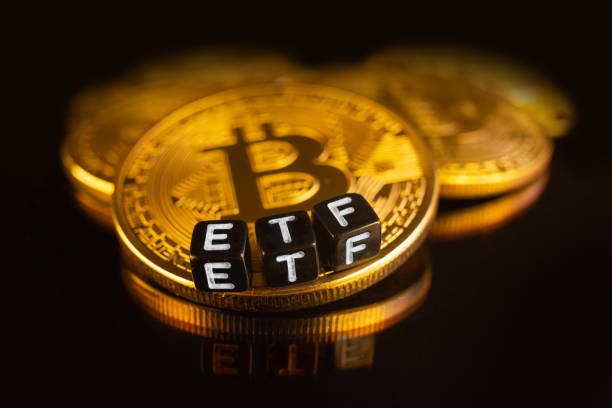In an unprecedented move that highlights the increasing intersection of cryptocurrency and traditional finance, a U.S. Congressional panel has recently sought a briefing from the Securities and Exchange Commission (SEC) regarding misleading posts about Bitcoin Exchange-Traded Funds (ETFs). This request signifies a crucial step towards greater regulatory clarity and investor protection in the burgeoning world of digital assets. You can also quantum fbc for further information.

The Emergence of Bitcoin ETFs
Bitcoin ETFs represent a significant milestone in the integration of cryptocurrencies into mainstream finance. By allowing investors to gain exposure to Bitcoin through a regulated financial product, these ETFs offer a bridge between the innovative world of cryptocurrencies and the traditional investment landscape. However, the path to their approval has been fraught with regulatory hurdles, primarily due to concerns over market manipulation and investor protection.
In the face of these challenges, industry stakeholders have been actively engaging with regulators, seeking ways to address their concerns while advancing the cause of Bitcoin ETFs. These discussions have led to the introduction of innovative solutions such as surveillance-sharing agreements, which aim to prevent market manipulation by ensuring transparency and accountability in trading activities. Despite these efforts, the SEC has remained cautious, highlighting the need for robust regulatory frameworks to ensure the safety of investors. The recent request for clarification from the U.S. Congressional panel is a positive sign, indicating a willingness to understand and potentially embrace this new asset class.
The Role of the SEC
The SEC plays a pivotal role in overseeing and regulating securities markets in the United States. Its responsibilities include protecting investors, maintaining fair and efficient markets, and facilitating capital formation. The commission’s approach towards Bitcoin ETFs has been one of caution, as it balances the need to foster innovation with its mandate to protect investors.
Amid this evolving scenario, the active involvement of the U.S. Congressional panel signifies a marked change in the perception of Bitcoin ETFs and cryptocurrencies at large. It demonstrates a growing recognition of their potential to transform traditional finance, whilst also underscoring the need for enhanced oversight to ensure investor protection. The dialogue between the government and the SEC could lead to refined regulatory mechanisms that effectively balance innovation with investor safety, paving the way for an era of inclusive finance powered by digital assets.
Misleading Information and Investor Confusion
The recent focus of the Congressional panel stems from instances of misleading information circulating about Bitcoin ETFs. These false statements, often proliferating through social media and other online platforms, have the potential to create confusion and mislead investors. In a market as volatile and speculative as cryptocurrencies, the dissemination of accurate and reliable information is critical.
In light of these developments, it is pertinent for regulators, lawmakers, and industry stakeholders to collaborate and find common ground. This will ensure that misleading information about Bitcoin ETFs is minimized and that potential investors are afforded the highest level of protection. The evolution of digital asset regulation will be a testament to the adaptability of our legal frameworks and their capacity to foster and control innovation in tandem. This journey may be fraught with complexities, but the end result could see a more credible, transparent, and accessible financial system, where digital assets like Bitcoin become a significant part of our economic landscape.
Congressional Intervention
The Congressional panel’s intervention underscores the growing interest and concern among lawmakers regarding the cryptocurrency market. By seeking a briefing from the SEC, the panel aims to understand how the commission is tackling the issue of misinformation and what measures are being implemented to protect investors.
The next chapter of this story unfolds as we monitor how the SEC responds to the Congressional committee’s request for clarification. Will they implement stricter regulations or provide a clearer regulatory framework that balances both investor protection and the promotion of innovation? The answer to these questions will undoubtedly shape the future of Bitcoin ETFs and potentially even the broader cryptocurrency market. As both industry stakeholders and investors eagerly await the SEC’s response, one thing is clear: transparency, accountability, and clear regulatory guidance are paramount in this rapidly evolving financial landscape.
Implications for the Cryptocurrency Market
This development has far-reaching implications for the cryptocurrency market. Firstly, it signals a growing recognition of cryptocurrencies as a legitimate asset class that warrants regulatory attention. Secondly, it underscores the need for clearer regulatory frameworks to guide the development and operation of cryptocurrency-related financial products.
The Need for Collaborative Regulation
The complexity and novelty of cryptocurrencies require a collaborative approach to regulation. This involves not only regulators like the SEC but also other stakeholders including cryptocurrency exchanges, financial institutions, and technology experts. A comprehensive regulatory framework should aim to promote innovation while safeguarding investor interests.
Educating Investors
In addition to regulatory measures, there is a pressing need to educate investors about the risks and nuances of investing in cryptocurrencies and related products. Misinformation thrives in environments where there is a lack of understanding. Hence, educational initiatives by both regulatory bodies and industry participants are crucial.
Looking Ahead
As the SEC responds to the Congressional panel’s request, the cryptocurrency community eagerly awaits the outcomes. Clarity and guidance from the SEC could not only mitigate the risks associated with misinformation but also pave the way for more structured growth of the cryptocurrency market. The focus now shifts to how the SEC will balance the dual objectives of fostering innovation and ensuring investor protection in the dynamic world of digital assets.
Conclusion
The Congressional panel’s request for a briefing from the SEC is a significant moment in the evolving story of cryptocurrency regulation. It reflects a maturing understanding of the importance of this asset class and the need for robust regulatory mechanisms. As the landscape of digital assets continues to evolve, the collaboration between regulatory bodies, legislators, and industry participants will be key to ensuring a stable, efficient, and secure market for investors.



